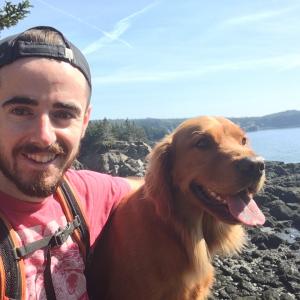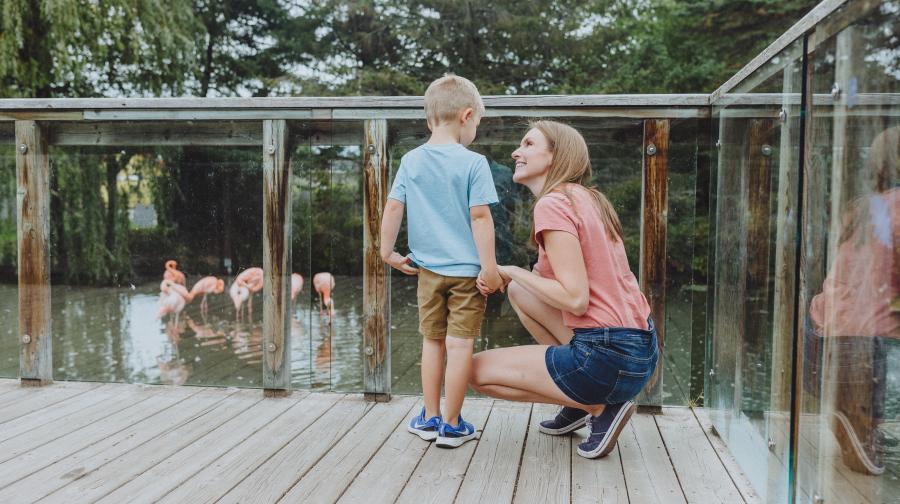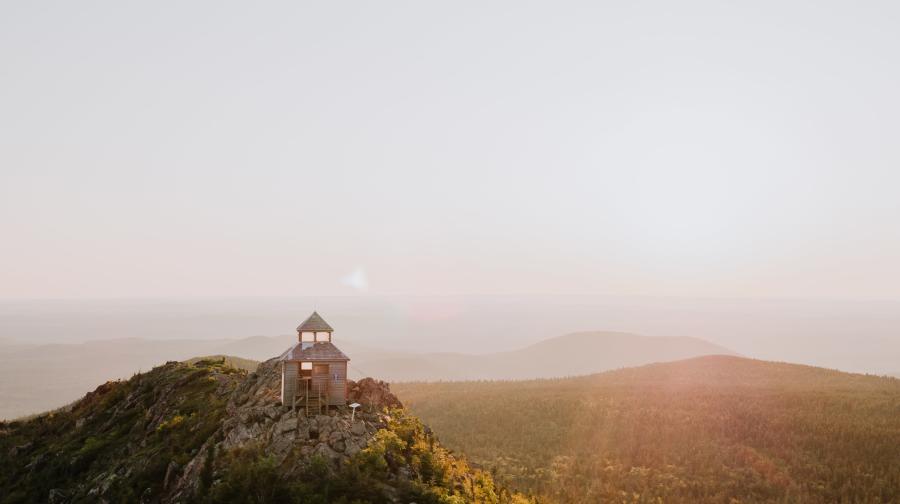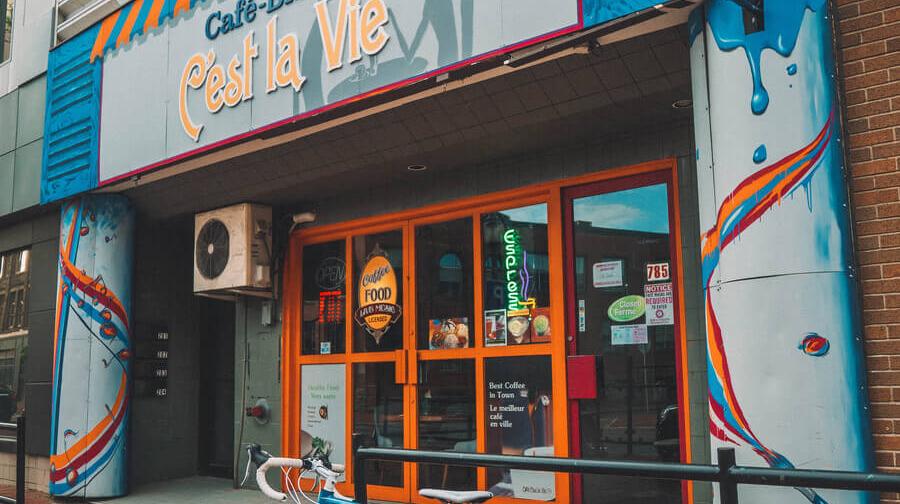Alex Mayberry, chef of Rothesay's Shadow Lawn Inn, shares his tips on foraging in New Brunswick.
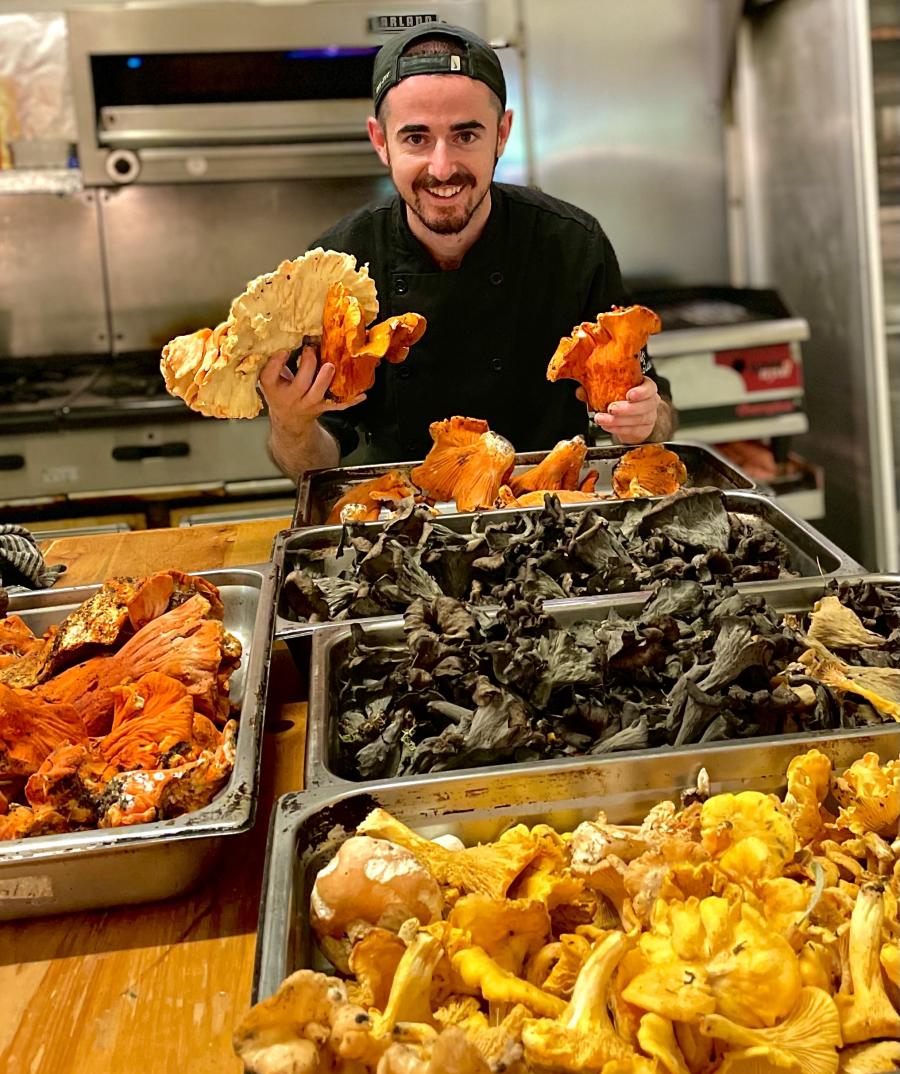
What can you forage for in New Brunswick?
New Brunswick hosts some of the best foraging conditions in the world. It’s not too hot, and not too cold. Springtime is wet, summers are hot and humid and we have the consistent breeze of the Bay of Fundy to keep things cool.
There is something to forage every month, year round. Whether it be chaga mushroom and white pine needles in the winter, morel mushrooms, fiddleheads, ramps and re-emerging buds in early spring, or the abundance of wild edible herbs, plants, fruits and fungi of summer and autumn.
In New Brunswick you can forage some of the rarest, and most sought-after wild edible mushrooms. From the elusive morel mushroom, to the black trumpet, chicken of the woods, maitake (hen of the woods), matsutake (pine mushroom), lobster mushroom, chanterelles and the king porcini. We’ve got a lot to choose from.
In our coastal province, you can forage for some seaside treasures like world famous dulse, sea beans, beach peas, crow berries, rock cranberries, bay berries, hawthorn berry, sea lettuce and many more.
The wild berries of New Brunswick are some of the best! Wild strawberries, raspberries, blueberries, blackberries, gooseberries, black and red currants, elderberries, and one of the rarest berries on earth – the cloudberry!
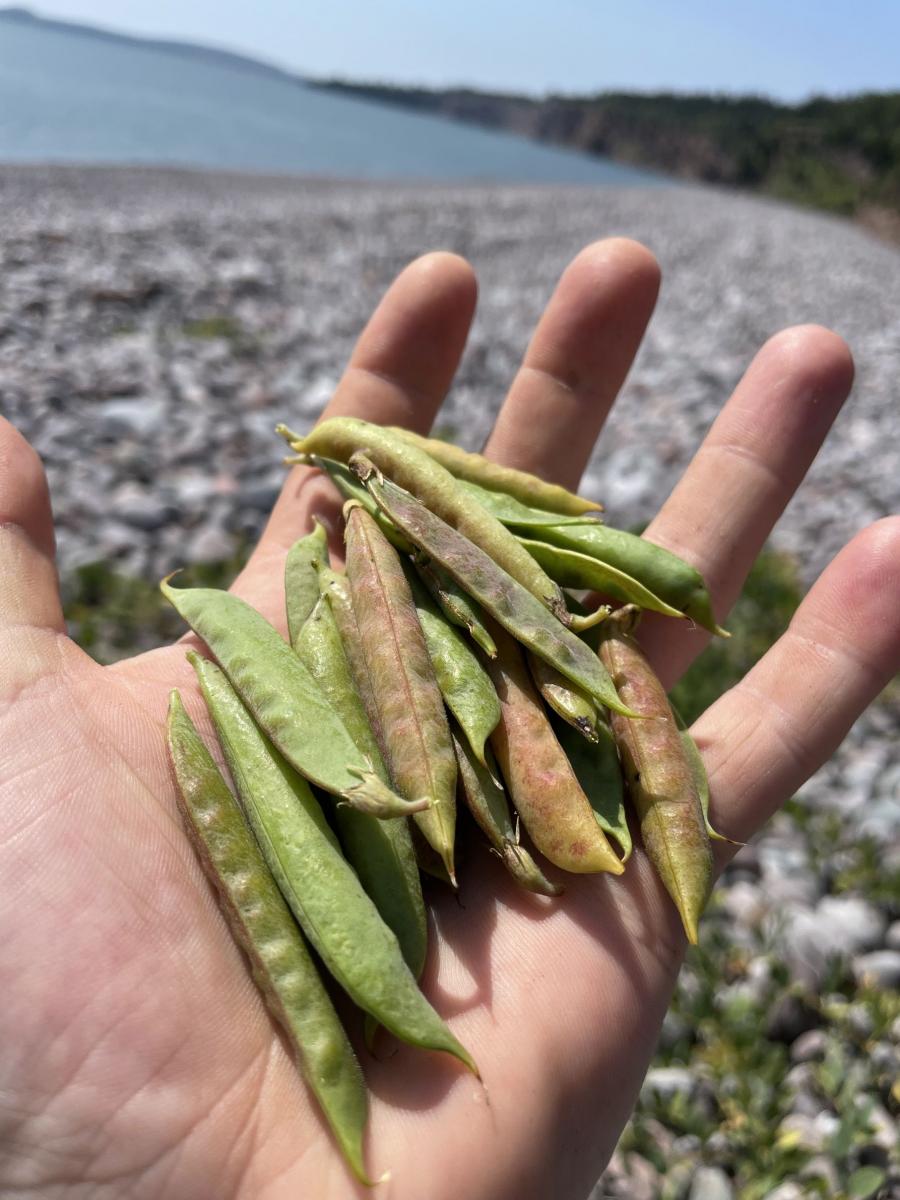
Is there a particular foraging season? If so, what can you get and when?
Springtime is the season of new growth, thus starting the foraging season. Seeing sprouts of green pop up after a harsh winter is truly a magical sight. March kicks off the season by tapping maple trees for maple syrup. Fiddleheads, wild ramps, spruce tips and morel mushrooms are some of my other favourite spring edibles.
Summer through fall there is a burst of life! Everything that grows usually peaks during the warm summer months. This is the same for wild foods too! There are a plethora of plants, fruits, flowers, fungi, herbs, wild vegetables etc. growing under the sun.
Do you need any expertise to forage? Or can anyone do it?
Foraging takes a bit of knowledge. Picking something from the wild to consume may seem daunting at first, but with a little practice, a lot of patience, and an open mind, you will be shocked with the amount of delicious foods that are just waiting to be picked. That being said, I can’t stress enough, don’t eat something that you are not 100% sure what it is. Some things may look just like a picture you saw, but could potentially be a toxic look-alike. There are poisonous plants in New Brunswick, some that can potentially be fatal.
Don’t let that discourage you though. I started foraging about 5 years ago with zero knowledge and now I am very confident with what I do. There are still some things that I can’t 100% identify yet, so I just leave them be. Start small, start slow, build your confidence and have fun doing it!
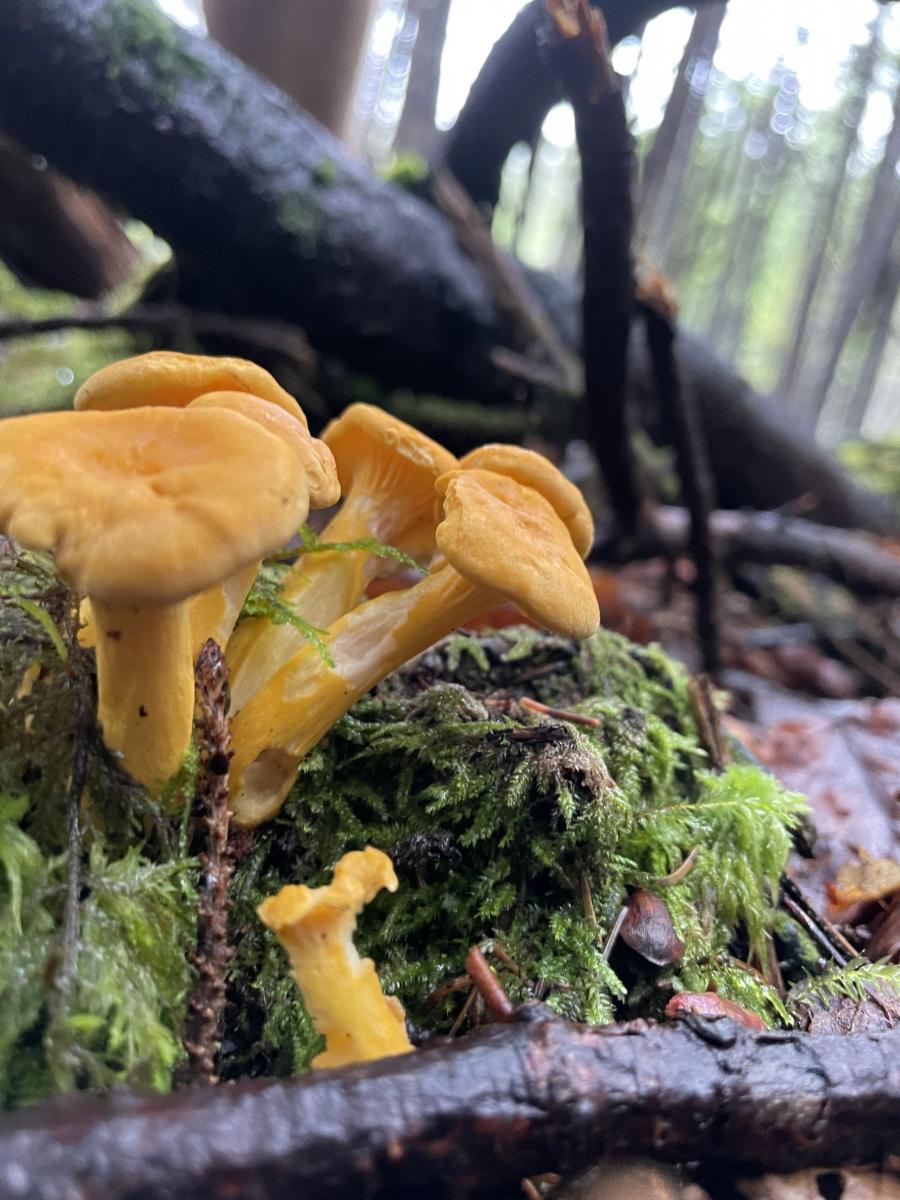
Any resources you can recommend for people who want to try foraging?
There are tons of field guides available for foraging! Eating Wild in Eastern Canada : A Guide to Foraging the Forests, Fields and Shorelines, Peterson Field Guides, and Mushrooms of the Northeastern United States and Canada are great places to start. I picked up a book on foraging the east coast and went from there. There are lots of foraging and identifying Facebook groups available to share pictures and information. These resources have been key for me! I couldn’t have learned all I know without the help of all the other wonderful foragers of New Brunswick!
What are some great areas to forage in?
I've driven hours, and hiked kilometres to find certain foraged foods, but I've also picked right in my own backyard! It all depends on what you are looking for of course because most species grow symbiotically with the area of nature you are in. Stay away from heavy traffic, or roadside areas.
Any tips on preparing foraged food?
It's hard to describe eating freshly picked berries, mushrooms or herbs. They’re fresher than what you get at the store, and you know exactly where they came from. Try substituting a porcini in your favourite mushroom dish, or freshly picked berries for a salad, or dandelion greens in a pesto! Get creative and be resourceful. Sure there may be dirt or bugs, but give them a wash and you're good to go.
Any tips or tricks for foraging in general?
I would recommend doing your own research. YouTube and foraging groups are great resources. Most people will keep their foraging spots a secret–as it probably took years to find–so don’t be disheartened if no one just gives you all the answers.
I started with basic knowledge of what I was looking for, packed my bags and set off into the woods. It was basically a wild goose hunt at first, but once you find something, chances are it will keep growing year after year in the same spot! So ALWAYS harvest sustainably. It’s easy to overwhelm and exhaust a plant, and if you pick too much it may not recover. Remember that 20%-40% of what is available is considered a sustainable harvest.
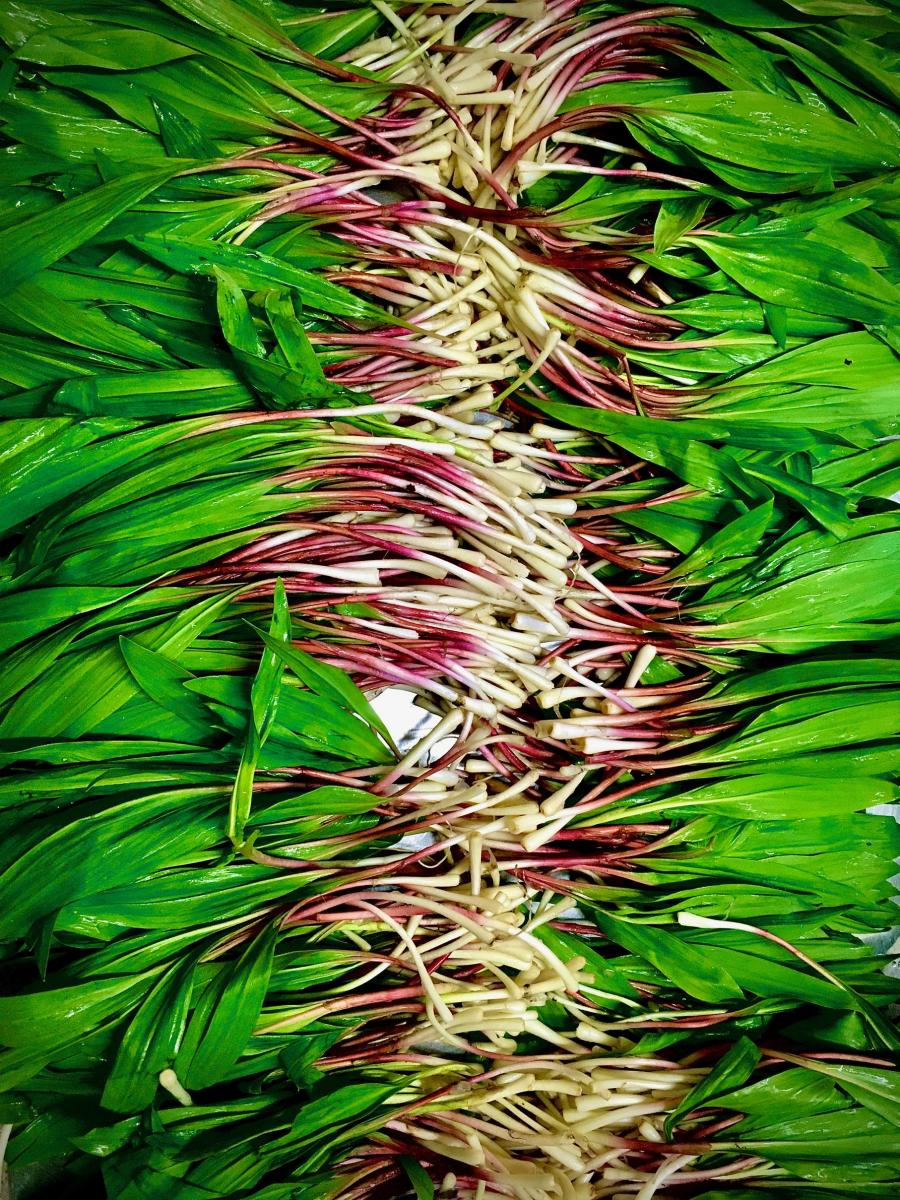
PSA – There are plants, fruits and fungi in New Brunswick that are toxic and/or poisonous. Some wild mushrooms have enough toxins in them to be lethal. (The destroying angel mushroom, angel wing mushrooms, and the death cap mushroom should be learned and avoided.)
Some plants, fruit, and fungi have toxic look-alikes that can make you very ill.
Don’t consume something if you are not 100% confident.


